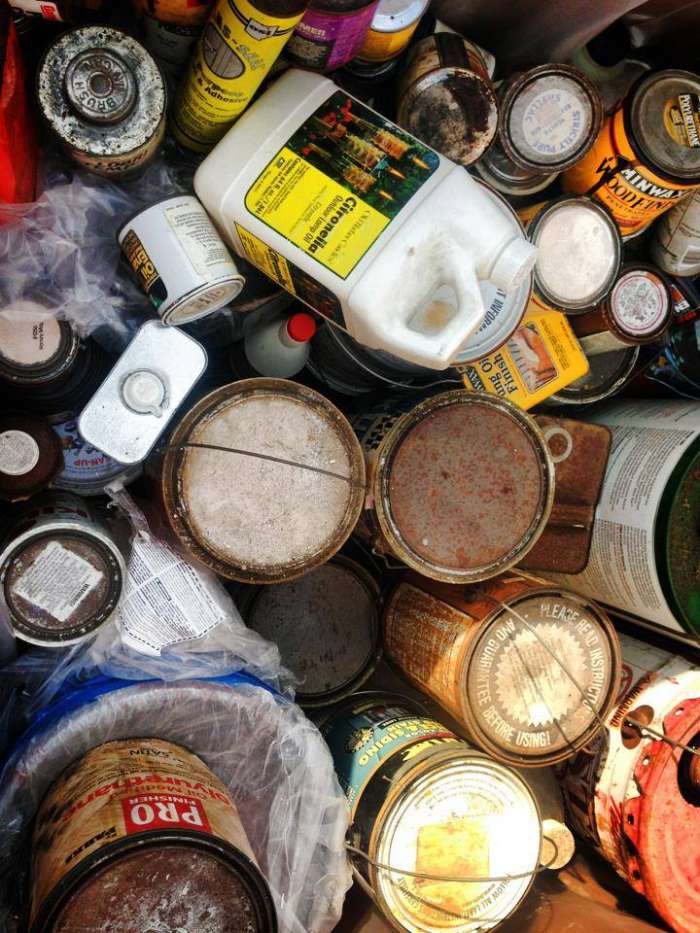Blog
What is HHW (Household Hazardous Waste)?
April 5th, 2018

Household hazardous waste.
What is it and what can we do about it?
According to the EPA "the average household generates more than 20 pounds of household hazardous waste per year." (Solid Waste) That being said, there are roughly 126 million households in the United States (U.S.: Number of Households), creating more than 1,260,000 tons of waste.
This is an extravagant amount of hazardous waste and it is vital for the environment to make sure you dispose of this waste properly.
So we know that there is a lot of this HHW, but what is it?
The EPA states that HHW is any household product that can catch on fire, react when introduced to other chemicals, cause an explosion, be corrosive or even toxic. (Household)
Some example of HHW are:
Adhesives, latex and oil-based paints, paint thinners and strippers, grease and rust solvents, wood and metal cleaners, nail polish, removers, cosmetics, household polishes and cleaners, oven cleaners, drain openers, lighter fluid, fungicides and wood preservative, insecticides, herbicides, rat poisons, used oil and oil filters, fuel injection and carburetor cleaners, antifreeze, batteries, just to name a few...
Why should you dispose of it properly?
It is extremely important to dispose of your household hazardous waste properly because if you don't, there WILL be consequences.
For example, pouring waste down a drain can severely effect drinking water, as water treatment plants can't process and filter out these harmful substances. You may also think "I'll just throw it in the garbage" however, doing this leads to these materials ending up in landfills which can cause harm to workers, and contaminate the soil, not only that, but it is illegal as well.
Keep in mind that disposing of HHW is not only important for the environment but for the safety of others. In 2012 alone, there were 28,591 hazardous waste accidents, and this has most likely increased over the past few years. (Hazardous Waste)
So, how do you dispose of it?
You can take your waste to a local HHW Facility, or you can wait for your town to host a HHW Collection event. Contact your local environmental, heath, or solid waste agency to learn about permanent or periodic HHW collections near you.
Click HERE to find out where you can dispose of your Household Hazardous Waste.
For those of you that are in the WNY area.
Check out Hazman, which is our HHW Facility at 177 Wales Ave, Tonawanda, NY 14150
Sources:
“Hazardous Waste Accident Statistics.” Hazardous Waste Accident Statistics | LegalMatch Law Library, 15 Mar. 2018, www.legalmatch.com/law-library/article/hazardous-waste-accident-statistics.html.
“Household Hazardous Waste (HHW).” EPA, Environmental Protection Agency, 26 Feb. 2018, www.epa.gov/hw/household-hazardous-waste-hhw.
“Solid Waste.” EPA, Environmental Protection Agency, www3.epa.gov/region9/waste/solid/house.html.
“U.S.: Number of Households 1960-2017.” Statista, www.statista.com/statistics/183635/number-of-households-in-the-us/.
